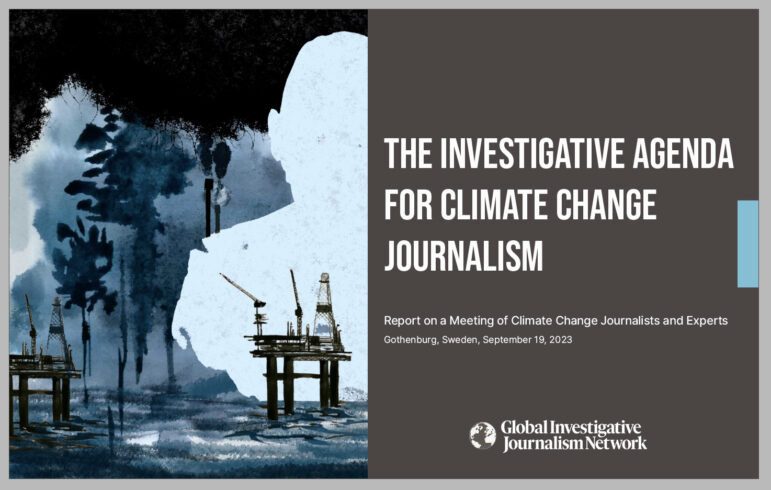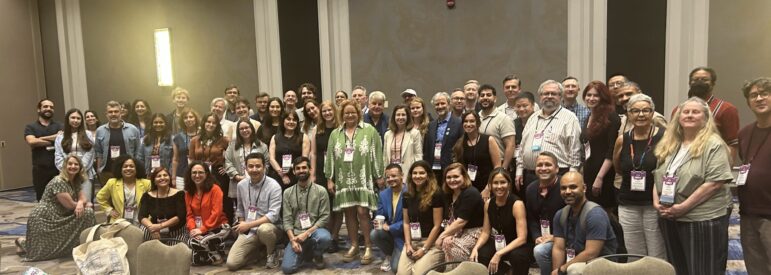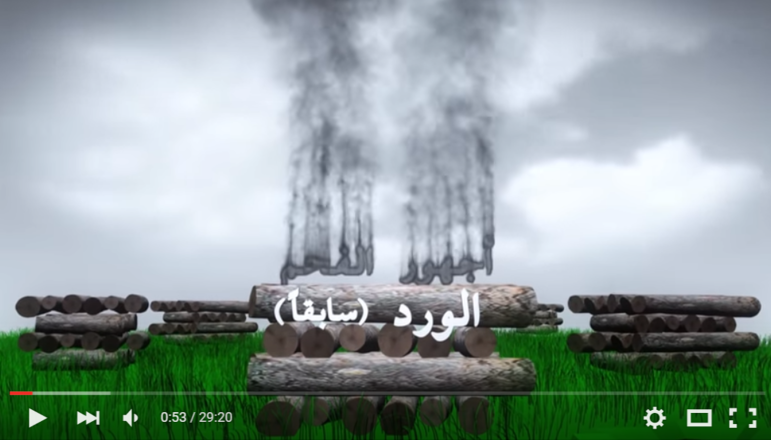

ARIJ Awards Highlight Reporting by Arab Investigative Journalists
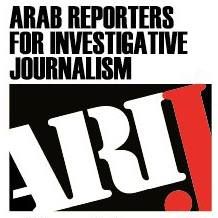 Arab journalists work amid some of the world’s most challenging environments. Terrorists and militias, arbitrary arrests and harassment, autocratic governments, and a lack of documents and data are just a few of the challenges they face on a daily basis. Since the failed promise of the Arab Spring, we have seen press freedom in countries such as Egypt sink to its lowest levels in a generation. These are not places you would expect to see great investigative reporting.
Arab journalists work amid some of the world’s most challenging environments. Terrorists and militias, arbitrary arrests and harassment, autocratic governments, and a lack of documents and data are just a few of the challenges they face on a daily basis. Since the failed promise of the Arab Spring, we have seen press freedom in countries such as Egypt sink to its lowest levels in a generation. These are not places you would expect to see great investigative reporting.
And yet, despite these conditions, extraordinary work is being done by journalists in the Arab world. Judging by the awards just given out by GIJN member Arab Reporters for Investigative Journalism (ARIJ), there is ample reason for hope. Seventeen Arab journalists from eight countries were honored with 2015 ARIJ Prizes for investigative reporting, presented December 6 in Amman.
The winners came from Jordan, Iraq, Lebanon, Palestine, Egypt, Tunisia, Yemen, and Syria, and have exposed a wide range of wrongdoings in their societies – from corruption, fraud, and unapproved care for autistic children to abuse of illegal African migrants and torture in jails.
“Undoubtedly, the culture of investigative journalism and in-depth features has become widespread among partner organizations,” noted Walid Batrawi, head of the 2015 ARIJ Jury Committee.
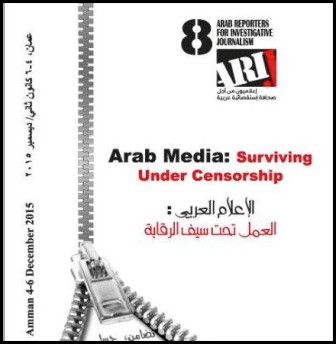 The prizes were announced at a gala dinner in Amman, Jordan, at the end of the 8th Forum for Arab Investigative Journalists organized by ARIJ, the region’s leading media support organization spreading the culture of “accountability journalism” in nine Arab states since 2005. The three-day event, attracting over 300 Arab and international investigative journalists and trainers, was held under the theme “Arab Media: Survival under Censorship.”
The prizes were announced at a gala dinner in Amman, Jordan, at the end of the 8th Forum for Arab Investigative Journalists organized by ARIJ, the region’s leading media support organization spreading the culture of “accountability journalism” in nine Arab states since 2005. The three-day event, attracting over 300 Arab and international investigative journalists and trainers, was held under the theme “Arab Media: Survival under Censorship.”
How dangerous is it do this kind of work in the Arab world? Consider that two of the awardees used aliases.
Here’s a look at the impressive winners, courtesy of our colleagues at ARIJ:
Long-Form Broadcast/Video
Lebanese journalist Riad Kobeissi (Al Jadeed TV) won first place in the long-form film category (20 minutes plus) for his investigation “The Diesel Meter in the Era of Horse-driven Fuel Carriages.” After months of filming undercover, he exposed various methods used by companies selling diesel to hospitals and households to manipulate the reading of meters, inflicting thousands of dollars in losses on consumers. Riad confronted the main owner of a workshop manufacturing a special type of meter, and cornered the driver of a fuel truck as he started manipulating the meter.
Second prize went to Ahmed Soleiman, an Egyptian freelancer, for his investigation “Primitive Charcoal.” Soleiman documented how a primitive and unlicensed charcoal industry in Aghour el-Ward, a region once known for its scented roses, has turned the area into an environmental hot spot, endangering the health of citizens and the environment.
https://youtu.be/MAXIMv5m1AM
Third prize went to Jordanians Musab Shawabkeh and Hanan Khandakji for “Autistic Children: Victims of Unapproved Centers.” The duo exposed five centers in Amman offering unapproved oxygen therapy to treat autistic children. Their investigation showed how doctors running these centers are not members in the Jordan Medial Association and forced desperate parents to commit to 90 treatment sessions for an average cost of 7,000 dinars ($10,000) in vain.
Short-Form Broadcast/Video
First prize in the short-form Film Category (under 20 minutes) went to “Eagle Stamp” by Sameh Laboudi of Egypt, who documented how officials manning local health ministry offices in charge of registering births and deaths use loopholes in the national archives to manipulate these certificates.
https://youtu.be/UERUKNBpL6U
Second place went to Palestinians Karim Asakreh and Bassam Elroumi for “Hydro: Death Sentence Covered by Law.” The duo tracked the trail of Hydro, a popular new drug marketed in Palestine to young and old as performance-enhancing drugs. The substance enters across porous border controls and is sold under various names and packages, each appealing to a special age group, especially school children and university students.
“Caravan” by Yunis al-Bayati from Iraq won third prize. In his investigation, al-Bayati exposed how the governor of Diyala province awarded a contract to import trailers to house thousands displaced by ISIS to companies close to his family members. Under the contract, trailers were bought at twice the price of standard prices and lacked basic services, compounding the misery of those displaced and wasting public funds allocated to help victims of militant groups.
Under the short-form film category, the judges also decided to award three “certificates of appreciation” to Osama Deeb (Egypt) for “Forbidden Joy,” Humam Mujahed (Egypt) for “Playing on a Moving Chair” and to Assad Zalzali (Iraq) for “The Devil’s Trade.”
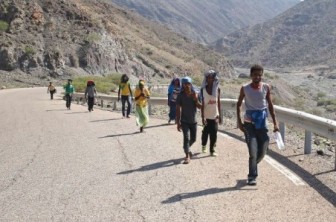 In the print category, first prize went to Ali Salem for his investigation “Yemen: African Immigrants’ Graveyard.” In his two-year investigation, Salem documented the practices of gangs operating in the Western coastal area, between the provinces of Taiz in the south and Hajjah in the North, which detain for ransom illegal African immigrants trying to enter Saudi Arabia. These gangs make use of weak cooperation among various police forces and loopholes in a weak judicial system.
In the print category, first prize went to Ali Salem for his investigation “Yemen: African Immigrants’ Graveyard.” In his two-year investigation, Salem documented the practices of gangs operating in the Western coastal area, between the provinces of Taiz in the south and Hajjah in the North, which detain for ransom illegal African immigrants trying to enter Saudi Arabia. These gangs make use of weak cooperation among various police forces and loopholes in a weak judicial system.
The award for second place was shared by journalists Sami Shahrour (an alias) for “Syria’s Kidnaping Business” and Egypt’s Saadah Abd-Wlqader for “Death by Remote Control.”
Shahrour spent three years investigating how random kidnappings in his war-torn country have turned into a business at the hands of police or others linked to security forces, who seek quick profits or to neutralize citizens considered opponents of the regime. Abd-Elqader documents how walkie-talkies are illegally imported into Egypt and sold in the heart of the capital Cairo, taking advantage of weak control by the Interior Ministry, the National Bureau for Organizing Telecommunications, and the Customs Department.
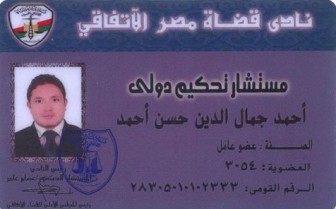 Third prize in print went to Seham El Basha and Ahmad Jamal Eddine (Egypt) for “Judicial Titles for Sale.“ They documented how International Mediation Centers in Egypt run three-day training courses and give attendants bogus certificates bearing diplomatic or arbitration titles similar to those on legitimate documents, for a fee of 1200 Egyptian pounds.
Third prize in print went to Seham El Basha and Ahmad Jamal Eddine (Egypt) for “Judicial Titles for Sale.“ They documented how International Mediation Centers in Egypt run three-day training courses and give attendants bogus certificates bearing diplomatic or arbitration titles similar to those on legitimate documents, for a fee of 1200 Egyptian pounds.
Under the print category, the judges also decided to give a “certificate of appreciation” for hard work and dedication to Mohammad Komani from Yemen for his investigation “Yemen’s Street Beggars.”
Special Prizes
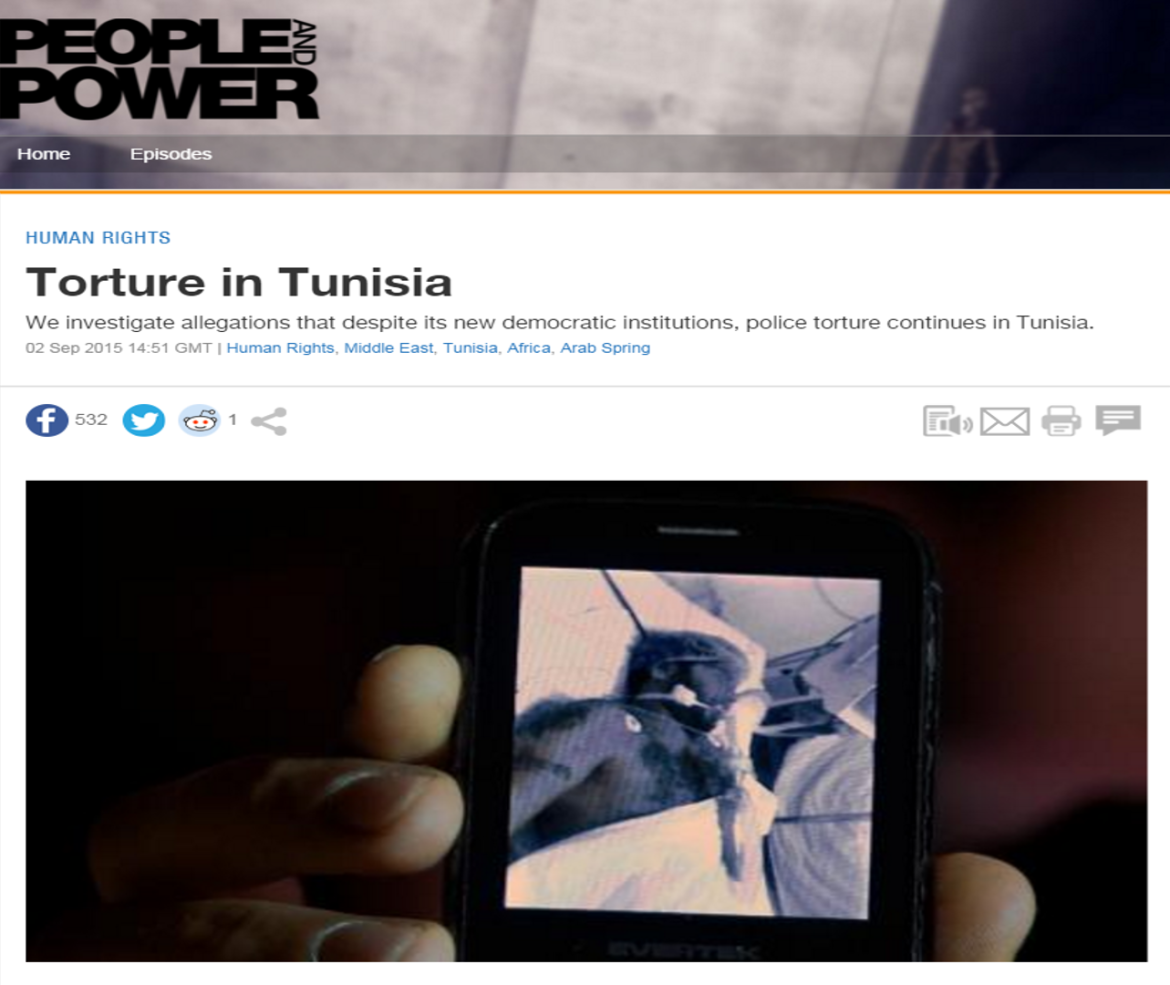 Two special ARIJ Board Prizes, one for exposing human rights and the other for uncovering corruption and organized crime, went to Tunisian freelancer Meriam Nasri and Syria’s Ibrahim Saleh (an alias) respectively.
Two special ARIJ Board Prizes, one for exposing human rights and the other for uncovering corruption and organized crime, went to Tunisian freelancer Meriam Nasri and Syria’s Ibrahim Saleh (an alias) respectively.
Nasri’s film, shown on Al Jazeera English’s People & Power investigations program in September, proved that despite Tunisia’s new democratic institutions since the 2011 revolution, police brutality and torture continued unabated.
Saleh’s investigation, “The Secret Empire of Al-Assad’s Maternal Family,” was completed under ARIJ’s work with the International Consortium for Investigative Journalists (ICIJ) project known as Swissleaks, on questionable financial transactions by banking giant HSBC.
Walid Batrawi, head of the ARIJ awards jury, noted that this year’s selection process was challenging. “The nominations we looked at were cutting-edge and of very high professional caliber,” he said. “The differences were sometimes less than 0.010% but at the end we had to distinguish some against others.”
“Many of the short and long-form films we examined contained visual proof to support the initial hypothesis of each investigation,” he added. “This was a key factor taken into consideration by the jury members.”



